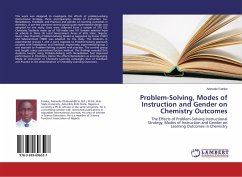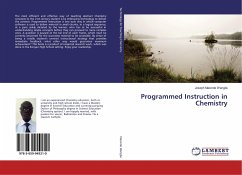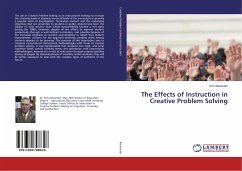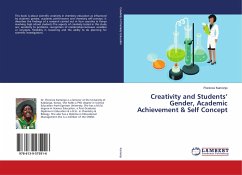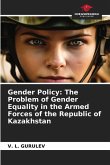This work was designed to investigate the effects of problem-solving instructional strategy, three accompanying modes of instruction (i.e. Remediation, Feedback and Practice) and gender on learning outcomes in chemistry. A pre-test post-test control group quasi experimental design was adopted for the study. Data were collected from a sample of 210 SS2 Chemistry Students made up of 109 males and 101 females selected from six schools in three (3) Local Government Areas of Ekiti State, Nigeria. Seven Step Chemistry Problem-Solving Model as suggested by Frazer (1981) and Selvarantnam (1983) was adopted for the study. The Students in experimental groups 1 and 2 were exposed to Problem-Solving approach coupled with remediation and feedback respectively, experimental group 3 was exposed to Problem-Solving coupled with practice. The control group was taught using conventional lecture method. The findings revealed that students taught using Problem-Solving with Remediation had improved performance in Chemistry. Hence the effects Remediation as accompanying Mode of Instruction in Chemistry Learning outweighs that of Feedback and Practice in the determination of Chemistry Learning Outcomes.
Bitte wählen Sie Ihr Anliegen aus.
Rechnungen
Retourenschein anfordern
Bestellstatus
Storno

